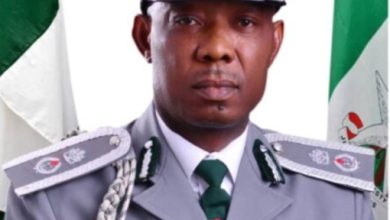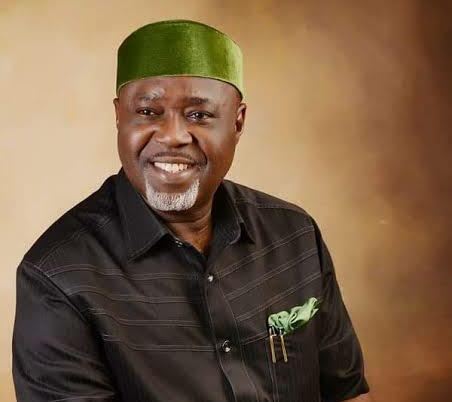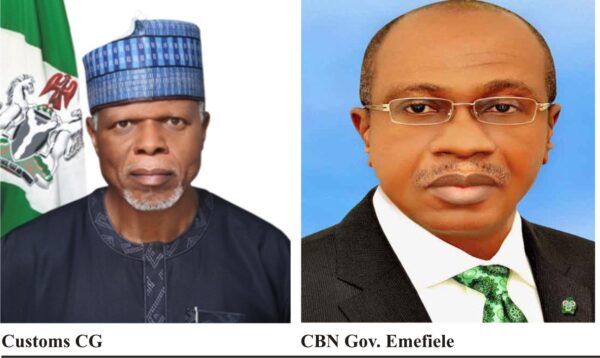Why We Have Waterways Accidents – Mamora

By Kenneth Jukpor
Senator Olorunnimbe Mamora is the Managing Director of the National Inland Waterways Authority (NIWA). In this exclusive interview with MMS Plus newspaper, he bares his mind on several challenges limiting the development of the nation’s water transport system, revealing his blueprint for transforming Nigeria’s transportation sector via waterways. Mamora also discloses his master-plan for NIWA and highlights the place of Public-Private Partnerships (PPPs). Enjoy it:
The spate of boat mishaps in the country has become frightening with two notable boat incidents in Kwara and Bayelsa claiming several lives in barely two weeks. What is NIWA’s reaction to these developments?
The incident in Bayelsa was a local market boat which exploded at the popular Swali market in Yenagoa, the Capital of Bayelsa State. The Area Manager came to see me in Lokoja and he explained that the incident occurred close to our area office in Yenogoa. The boat was loading while it had passengers that were also getting fuel into some jerrycans in the same boat. There was a generator that was being used to pump fuel into the jerrycans and there was spark from the generator and because the petrol had spilled over the place, the entire place was engulfed in fire in no time. The boat was already on water so people jumped out and luckily there was no life lost.
On the other incident that transpired in Kwara, I want to commiserate with the families of those who lost people as well as the entire people of Kwara State. NIWA has already written officially to commiserate with the people of Kwara.
I learnt from the information I received that the passengers were going for a wedding ceremony and the boat was overloaded and they didn’t observe safety measures. Life-jackets weren’t provided for the passengers and this contributed to the unfortunate incident which led to the loss of lives.
However, we are putting up some emergency measures especially for riverine areas where water transport is the only major mode of transportation. We are increasing the level of awareness, enlightenment and education on safety on the waterways through our area offices close to these areas. We also intend to co-opt the various leaders and associations. We want them to own this idea and prioritize the issue of safety and security. We want them to participate in the sensitization, own the procedures and understand that these guidelines we are demanding are for their interest. While we cannot stop people from sailing, this would enable us get them abide by the NIWA guidelines in terms of safety measures.
What enlightenment/ sensitization strategies would you deploy in the bid to get the boat operators and other stakeholders in the water transport system acquainted with NIWA guidelines and the enforcement process?
We are not unaware that most of these people have some allegiance to their local government and state governments. Hence, we intend to work with the local and state governments via partnerships to drive this enlightenment campaign to be able to get them abide by NIWA guidelines on safety.
We also intend to have Marshals on the waterways just as we have the Federal Road Safety Corps (FRSC) who assist in enforcement of transport regulations for the road mode. These Marshalls would assist us in ensuring compliance because we have a vast stretch of waterways that NIWA alone can’t police the whole place singlehandedly; that is why we are talking about partnerships with the state and local governments. In the area of enforcement, the local and state government could own the exercise because it is in their interest. Although we already have a strong relationship with the police, we are also deepening the support partnership with the Marine Police.
Some of the challenges we have are in the area manpower, patrol boats, and others but NIWA exists to find solutions and overcome challenges. So, we aren’t going to relent but continue to do all we should in order to make water transportation safe for Nigerians. This is our mandate and we won’t shy-away under the guise of challenges.
Would this proposed Waterways’ Marshals also play the role of search and rescue for incidents on the waterways?
Yes, that would be part of their mandate. We intend to equip them with all they would require to enable them fulfill this. NIWA would also be working with the Marine Police and other agencies that would be willing to partner with us because we are aware that we can’t handle this responsibility alone. However, every single life is important and we cannot treat issues lightly especially when it has to do with lives.
When you emerged as the Managing Director of the National Inland Waterways Authority (NIWA) one of the first assurances you made was to address the conflict between NIWA and the Lagos State Waterways Authority (LASWA) via diplomatic procedures. Has there been any development with regards resolving the dispute?
The discussions are still ongoing. I’m currently seeking audience with the Lagos State Governor, Mr. Akinwunmi Ambode because I believe the issue has to be resolved from the highest authority in the state. As soon as I get the appointment to meet with the Governor we would start the process. Once the Governor buys into our plan as the highest authority in the State, it would be easy for us to resolve the issue. What we would be interested in is a win-win situation because the conflict is essentially based on revenue. If we pursue an amicable solution to this problem, it would be in the best interest of both the federal and the state government.
Recently, we learnt NIWA was planning to develop super highways via Public-Private Partnerships (PPPs) to enhance the contribution of water transport for not just passengers but also assist in the evacuation of cargoes from the ports. Has this idea been part of your mandate?
PPP is the way to go with regards investments in this country. NIWA has had several proposals and some from foreigners and we are looking into these proposals. We would ensure that whatever PPP we go into doesn’t shortchange our people and the nation. We have to ensure that these arrangements are advantageous to Nigeria. The aim is to maximize the potentials available to the nation via the waterfronts and the entire inland waterways. These potentials are quite enormous but we have to look at them critically and ensure that we adopt initiatives that put the interest of the nation first. The waterways can be the solution to the Apapa traffic situation because cargoes can be conveyed on the waterways via barges. We would look at the numerous proposals before us and go for those that are in tandem with our purpose to achieve the best for Nigerians.
What would be the major achievements you would love to be remembered for when you leave NIWA?
There are several dilapidated jetties across the nation and I want to replace them with modern jetties that would be very attractive to Nigerians. We intend to put in place Mass Water Transit systems just as you have the Lagos Bus Rapid Transit system. We should have water buses especially in areas like Lagos where we are battling with very terrible road traffic situation. We can use the water transport mode to solve this problem. With water buses we can convey people across various locations in Lagos.
We are also looking at the river ports to make them economically viable to increase the economic activities at those locations whilst reducing the over-dependence on Lagos ports. The transportation of cargoes can also be done from Lagos to Warri, Onitsha, Port Harcourt, and other locations via the waterways. This would take a lot of trucks and tankers off the roads and the consequent effect would be easy access of the roads, reduction in road accidents and increased durability of the roads. In order to utilize the waterways for cargo evacuation, we would need to ensure that the channels are navigable, safe and secured.
For example, from Baro in Niger to Onitsha, we should be able to get things right and move cargoes along this channel. This would change the entire phase of transportation positively and not just on water.
We also intend to have water ambulances for emergency situations on the waterways. There are also several assets along the right-of-way that we could transform into tourism sites for leisure and generate income from such assets. There is no reason we can’t have hotels on some of our assets on our right-of-way. We have so many things that we are looking at; particularly through PPPs. There is a whole lot to be done to transform the waterways to get the best for Nigerians.







